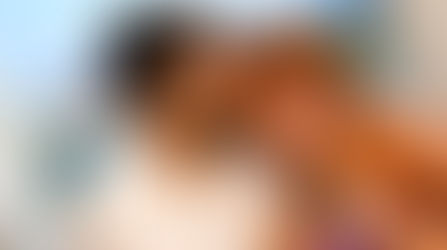Check out the two adorable new residents at Brevard Zoo - A baby Howler Monkey and a Cape Porcupine!
- Alastair Mac

- May 5, 2023
- 4 min read
Brevard Zoo in Melbourne have announced two new additions! Check them out!!

First up, a surprise awaits you in Rainforest Revealed: A new baby howler monkey! Fourteen-year-old Baya gave birth overnight on April 30 and the newborn was discovered in the early morning of May 1 by keepers. While the zoo do not yet know the baby’s sex or name, everyone is delighted that they appear to be healthy and alert.
This youngling joins a family unit of howler monkeys that includes their mom, Baya; their dad, 18-year-old Stormy; half-siblings Batata (7) and Beatle (6); as well as their full sibling, a 9-month-old male born to Baya and Stormy in August 2022.
“We’ve confirmed the baby nursing,” said Rainforest Revealed Area Supervisor Michelle Johnston. “The little one has a strong grip onto mom, which is a good indicator that they are strong and doing well.”
Our young male born last year to Baya is still spending a lot of time around mom, learning to “share” with his newest sibling! “He is also becoming so much more independent these days,” said Michelle.
"All infant howler monkeys are born with blonde hair in order to “blend in” with their mothers! Because we prefer to be as hands-off as possible with our new additions, we do not know the sex of the baby at this time. If the newborn is a male, their hair will turn black when they are around two-and-a-half years old!"
This little one is Baya’s seventh offspring and second at Brevard Zoo. Baya and her older daughters, Batata and Beatle, came to the Zoo in late 2021 as a part of the Association of Zoos and Aquariums’ Species Survival Plan (SSP) for their species.
Female howler monkeys care for their young for around 12 months. After that, the young stay with their natal group and will continue to be around mom and other family members. This species has been known to have other females in the group help care for the young and even carry, groom and protect them!

Although black howler monkeys are not considered endangered, they are threatened in their natural range due to habitat loss, agricultural development and human hunting.
Here are a few tips to help:
When you drink Bird Friendly Coffee, you are supporting farms that grow coffee in a way that helps migratory birds – and other forest dwelling animals – live their best lives in healthy habitats!
E-waste, or electronic waste from old phones, computers, cords and similar products, is one of the fastest growing types of waste in the world, and when not disposed of properly, it can cause environmental harm. Bring your old phones and tablets to Brevard Zoo to recycle through eco-cell! A drop-off point is just outside the Zoo’s front entrance.
Baya and the newborn are currently on habitat in Rainforest Revealed, where they share a large space with their troop as well as macaws, scarlet ibises, river turtles, red-legged seriema and roseate spoonbills. See if you can spot our newest baby on your next visit!

Next up is Loki the Cape porcupine!
Loki recently arrived from another facility accredited by the Association of Zoos and Aquariums, and is a fun new addition to Brevard Zoo's Meerkat Manor!
Porcupines are one of the species that can cohabitate well with meerkats, said Lauren Hinson, Brevard Zoo's director of animal programs.
In addition to some behind-the-scenes introductions, Loki will slowly be introduced to the habitat as well as his new habitat-mates. The ample area will give everyone their own space if they’d prefer and keep any possible negative interactions at a minimum, with the zoo's animal care team keeping an eye on everyone for now.
1-year-old Loki dines on yams, fruits, vegetables, greens, a special food called primate browse biscuits, and the occasional boiled beef bone. He enjoys enrichment that encourages his natural instincts to forage and dig – making the meerkat habitat an ideal spot for him!
Cape porcupines are the largest species of porcupine in the world AND the largest species of rodent in their natural range of Africa. While Loki’s long white quills have hardened now, they were actually soft bristles when he was born! Porcupines don’t actually shoot their quills – the quills shed upon impact and become stuck in their attacker.
You can check out Loki and the rest of our meerkat mob at their home at the front of Expedition Africa!

For the very latest news and information from Orlando and Central Florida, check back often here at Gotta Go Orlando as we keep you informed throughout the day, every day.
Plus, subscribe to the Gotta Go Orlando YouTube Channel, your free guide to Orlando.
Please Note:
Gotta Go Orlando is your free guide to all the amazing happenings in Orlando. Every day we offer the most up to date news and information on the best of Orlando and Central Florida.
We are supported by our advertisers via digital ads, sponsored content, and affiliate links, articles may be paid for, or contain affiliate links where we could earn money if you purchase products or services via a link our site.


















Comments